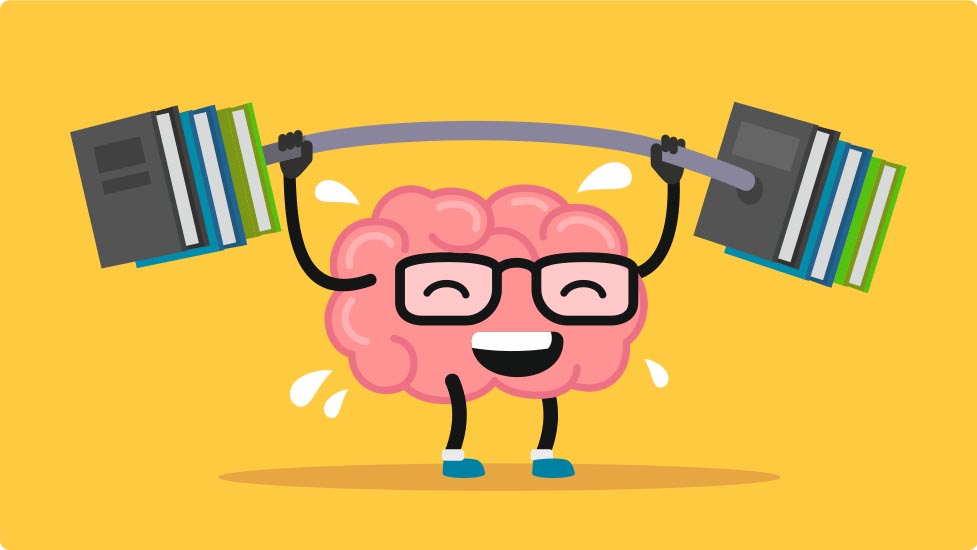
There’s no argument against improving one’s mind.
No matter what field of expertise, social circumstance, personal or professional spectrum you operate in, enhancing your brain will only have positive consequences. Beyond the part of your life that you spend actively learning, earning and achieving, a sound mind also combats common geriatric conditions like dementia and Alzheimer’s. So it’s an investment of effort, the benefits of which you reap all the way till your grave.
But when it comes to investing said effort, a lot of us are discouraged by the sheer boring and/or tedious nature of the exercises that improve cranial capacity.
More often than not, they’re puzzles. While sudokus and crosswords make for a productive way to pass the time, they’re solitary undertakings, and are infamous for putting an active mind to sleep in the middle of the day.
Then there are the board games, the likes of mahjong, checkers, and chess, which albeit more stimulating than deducing the correct numbers or words, are still a very timid definition of the word “fun”.
So, what’s the solution for training your brain but also having fun while you’re at it?
Yup, you’ve guessed it.
The reason Poker is never as boring as chess or mahjong or checkers is that every hand starts you off with only half the information that you’ll need to play it properly. This keeps the brain up and running as it processes fresh and new stimuli, every single hand.
Also, the reward in the aforementioned board games is binary - win or loss. In poker, the reward is not just cumulative, but also subjective: sure, you could lose the first pot, but in doing so, you will learn something tactical that could help you win the next few pots.
The problems lies not in the fun aspect of poker, but its credibility as a mentally beneficial sport, because of its perception as an elaborate gambling and somewhat skill-based endeavour.
So, without further preamble, here are the ways in which playing and practicing poker most definitely improves the most vital organ in your body…
“You have to know when to hold ‘em,
And you have to know when to fold ‘em.”
What Kenny Rogers unwittingly refers to in his song The Gambler, is the discipline that is instrumental to success in Poker. Knowing when to concede in a hand is literally half the job of amassing winnings in a Poker session. Be fast and loose with your decision-making, and you’ll rarely be one of the last two sitting at the table. So when you’re taking Poker seriously, you’re conditioning your brain to be tactical rather than impulsive. That’s not just a mental skill, but an emotional one!
As opposed to most board games and card games, distractions are a welcome part of Poker. Neither spectators nor players are asked to keep quiet, so part of each player’s skill lies in their ability to tune out the needling that comes from those around them. Being able to dictate what your brain selectively perceives is the mark of a highly responsive and wilful mind, and that’s what Poker will ingrain in you, for the rest of your days.
There are always those who’ll say poker is a game of luck, and always those who say poker is a game of skill. We’ll clear the air once and for all: the former group is mistaken. Poker requires as much logical reasoning as chess, with a lot more agility. If you don’t see it immediately, let’s put it this way: Chess is a game that only has a deal and a flop. No turn. No river. So when your brain is working on poker, it’s not just applying logic, but also developing and storing parallel outcomes on the basis of probability, to apply and disregard as the game progresses. That’s how Poker develops your mental agility better than chess.
So anyone who says poker is a game of luck, probably also says grapes are sour. Send them the link to this article.
In every hand, a good poker player starts with one strategy, and finishes with another. This change happens during the course of the hand, as new variables are introduced (turn, river, opponents raising and checking). Furthermore, over the course of a session, a player needs to keep varying his approach between aggressive and conservative, to avoid becoming predictable. Not even the best poker player in the world will ever say that they are “comfortable” when playing poker. If you’re comfortable, you’re losing.
With the need to adapt constantly and frequently, poker wires the human brain to think fast, and think well.
So the next time you’re
a) asked about a fun way to train the brain, or
b) being reprimanded for playing too much poker,
simply cite the literature above, and have them thank you later!